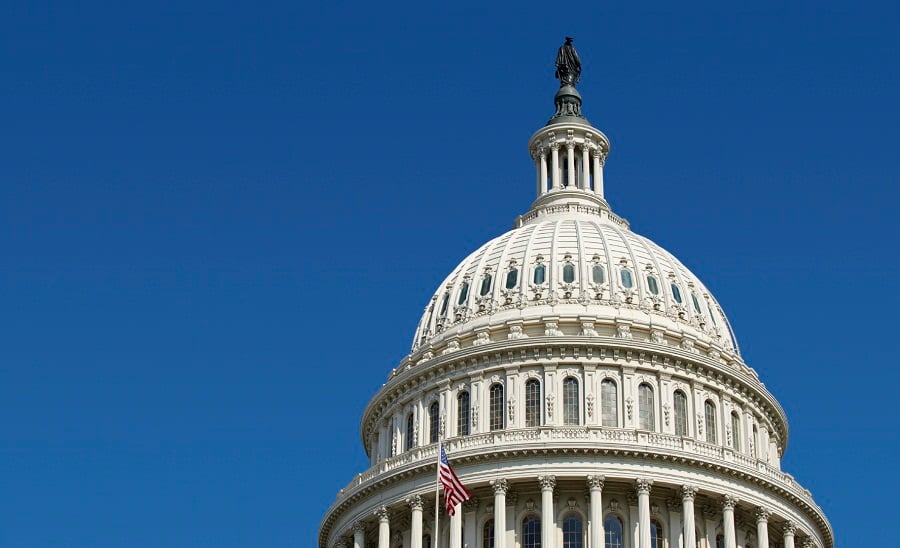

A Senate bill on retirement savings is coming soon that could complement a measure the House is likely to pass later Tuesday.
Sen. Patty Murray, D-Wash. and chairwoman of the Senate Health Education Labor and Pensions Committee, said at a hearing Tuesday that she and the panel’s ranking Republican, Richard Burr of North Carolina, are drafting legislation to boost the amount of money Americans can accumulate for their post-work years.
“I’m actually very excited to roll out what I’ve been working with Sen. Burr on soon,” Murray said. “And I hope … our Democratic and Republican colleagues will continue to bring forward ideas over the next few weeks so we can build a good, bipartisan package that helps workers, retirees and families. Because it is painfully clear we need to do more to strengthen people’s emergency savings and retirement security.”
The bipartisan atmosphere at the hearing is likely to be reflected later today in a House floor vote on SECURE 2.0, retirement savings legislation that builds on the landmark original SECURE Act Congress approved in 2019.
The House is considering SECURE 2.0 under fast-track rules that indicate it will have strong bipartisan support. The measure would raise the minimum age for required distributions from retirement plans to 75 from 72, expand automatic enrollment in 401(k) and 403 (b) plans and provide incentives for small businesses to offer retirement plans, among many other provisions.
The bill would require a Senate companion. In addition to the Senate HELP Committee, which has jurisdiction over federal retirement laws, the Senate Finance Committee also will consider retirement savings legislation, such as a measure that has been introduced by Sens. Rob Portman, R-Ohio, and Ben Cardin, D-Md.
The Senate HELP hearing on Tuesday featured witnesses who explored barriers to retirement savings that they hope Congress targets in legislation, including struggles faced by part-time and gig workers in building nest eggs as well as disparities in retirement savings affecting women and people of color.
Doug Chittenden, head of client relationships at TIAA, pressed for including annuities in retirement plans so that workers will know how far their savings will take them into retirement. He advocated legislation that would make annuities a qualified default investment option.
“This bill would give [employers] a much-needed tool to offer personal pensions to their workers,” Chittenden told the panel. “This is vital to addressing the future lifetime-income needs of retirement savers. We ask the committee to consider modernizing these regulations.”
Annuities can provide certainty about income during retirement but they also tend to be complicated and expensive vehicles, which can draw skepticism from investor protection advocates.
But Chittenden seemed to have made an impression on Murray.
“I especially appreciate the discussion about the need to add lifetime income into defined-contribution plans so people can be sure their retirement assets will last, and I hope we can include ideas that achieve the right balance here in our legislation,” she said at the end of the hearing.
Murray also expressed support for bolstering fee disclosures by 401(k) plans and for requiring better financial disclosures surrounding an investor’s decision on whether to take a lump-sum payment instead of continuing in a retirement plan
Burr stressed the need for more people to save and do so on their own terms.
“What we need to do is help Americans and their employers offer, operate, and fund individual retirement plans,” Burr said at the hearing. “What I want the most is for Americans to control their own money, have safe options on how to invest and save, and live with as few government and industry middlemen or middlewomen as possible.”

Consolidation continues in US wealth management industry.

Tech company democratizes access to US trading infrastructure.

RBC Wealth Management's latest move in New York adds an elite eight-member team to its recently opened Westchester office.

Stifel – so far - is on the hook for more than $166 million in damages, legal fees and settlements in investor complaints involving Roberts, a 35-year industry veteran.

The giant alt investments platform's latest financing led by T. Rowe Price and SurgoCap Partners, along with State Street, UBS, and BNY, will fuel additional growth on multiple fronts.
Orion's Tom Wilson on delivering coordinated, high-touch service in a world where returns alone no longer set you apart.
Barely a decade old, registered index-linked annuities have quickly surged in popularity, thanks to their unique blend of protection and growth potential—an appealing option for investors looking to chart a steadier course through today's choppy market waters, says Myles Lambert, Brighthouse Financial.
